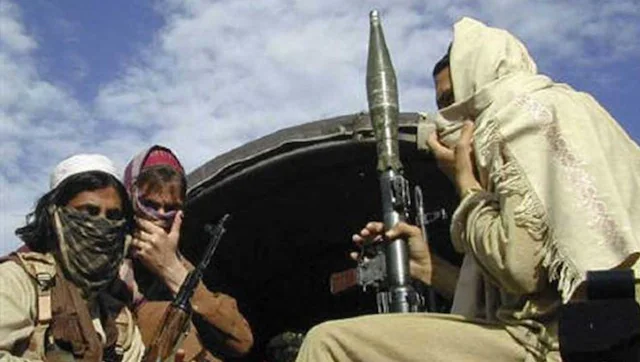Taliban confident of peace deal in Panjshir, but Afghan resistance force vows ‘no surrender’
[ad_1]
The probable peace deal between the Taliban and the Panjshir Resistance is not yet clear. Neither is it known whether the Resistance is negotiating only for the Panjshir province or for Afghanistan
Representational image. AP
The Taliban will likely strike a peace deal with resistance forces in the Panjshir province as top leaders of both the groups are in talks, spokesperson Zabihullah Mujahid said to Shamshad News Outlet.
The Taliban leader said he is “80 percent confident of a solution without war in the Panjshir Valley”, the free land in Afghanistan.
Taliban to reach peace deal with Panjshir resistance soon: Spokesperson
“We are in contact with people of Panjshir. We are in talks with the elders, influencers, and Jihadist commanders. The talks will soon solve the problem without war. I am 80 percent confident that there will not be a need to go to war. According to our information, a peace agreement will be reached soon,” said Mujahid.
The Taliban and the National Resistance Front (the Panjshir Resistance army) are at loggerheads over the Panjshir province as NRF leaders Massoud, son of legendary Ahmad Shah Massaoud, and acting president Amrullah Saleh have refused to surrender before the Taliban.
The NRF has also captured Pol-e-Hesar, Deh Salah and Banu districts after Kabul caved in.
The probable peace deal between the Taliban and the Panjshir Resistance is not yet clear. Neither is it known whether the Resistance is negotiating only for the Panjshir province or for Afghanistan.
Anti-Taliban resistance spreading in Afghanistan: Massoud brother
Earlier on Wednesday, the brother of famed commander Ahmad Shah Massoud had said that resistance to the Taliban has spread extensively across Afghanistan and the hardline Islamists will be unable to crush it in the wake of their takeover.
“If the Taliban want to attack, people have the right to resist, to stand against the Taliban. The geography of the resistance has expanded so much across Afghanistan,” said Massoud, who has been based in Pakistan where he headed an NGO protecting the legacy of his brother.
He argued that “the beliefs of the people of Afghanistan have changed in the past 20 years. There has been a big jump.”
“The women of Afghanistan are the resistance, because their values are very different from the ones of the Taliban. The young generations of Afghanistan, which make up 70 percent of the population, they are part of the resistance.
“No matter what happens, resistance will continue. It is freedom fight for a universal belief, for universal rights. It will never die.”
‘Moral obligation’
Ahmad Massoud, son of Ahmad Shah Massoud, vowed to never surrender but said he was open to negotiations with the new rulers of Afghanistan, in an interview published by Paris Match on Wednesday.
Ahmad Massoud claimed “thousands” of men were joining his National Resistance Front in the Panjshir valley, which was never captured by invading Soviet forces in 1979 or the Taliban during their first period in power from 1996-2001.
He also renewed his appeal for support from foreign leaders, including French President Emmanuel Macron, and expressed bitterness at being refused weapons shortly before the fall of Kabul earlier this month.
Ahmad Wali Massoud added: “The international community has got a moral obligation to help us.”
But he said the resistance forces were prepared for a grinding guerrilla struggle with the Taliban, just as the hardliners had waged an armed struggle against NATO forces for two decades.
“Our guys have a lot of experience. If it comes to a resistance, we are pretty sure that across Afghanistan, there will be warfare everywhere to exhaust the Taliban. That will be guerrilla resistance, military resistance, but at the same time there will be political resistance.”
Ahmad Shah Massoud, a francophile with close links to Paris and the West, was nicknamed the “Lion of Panjshir” for his role in fighting the Soviet occupation in the 1980s and the Taliban regime in the 1990s.
He was assassinated by Al-Qaeda two days before the 11 September, 2001 attacks.
With inputs from agencies
[ad_2]
Source link


Comments are closed.